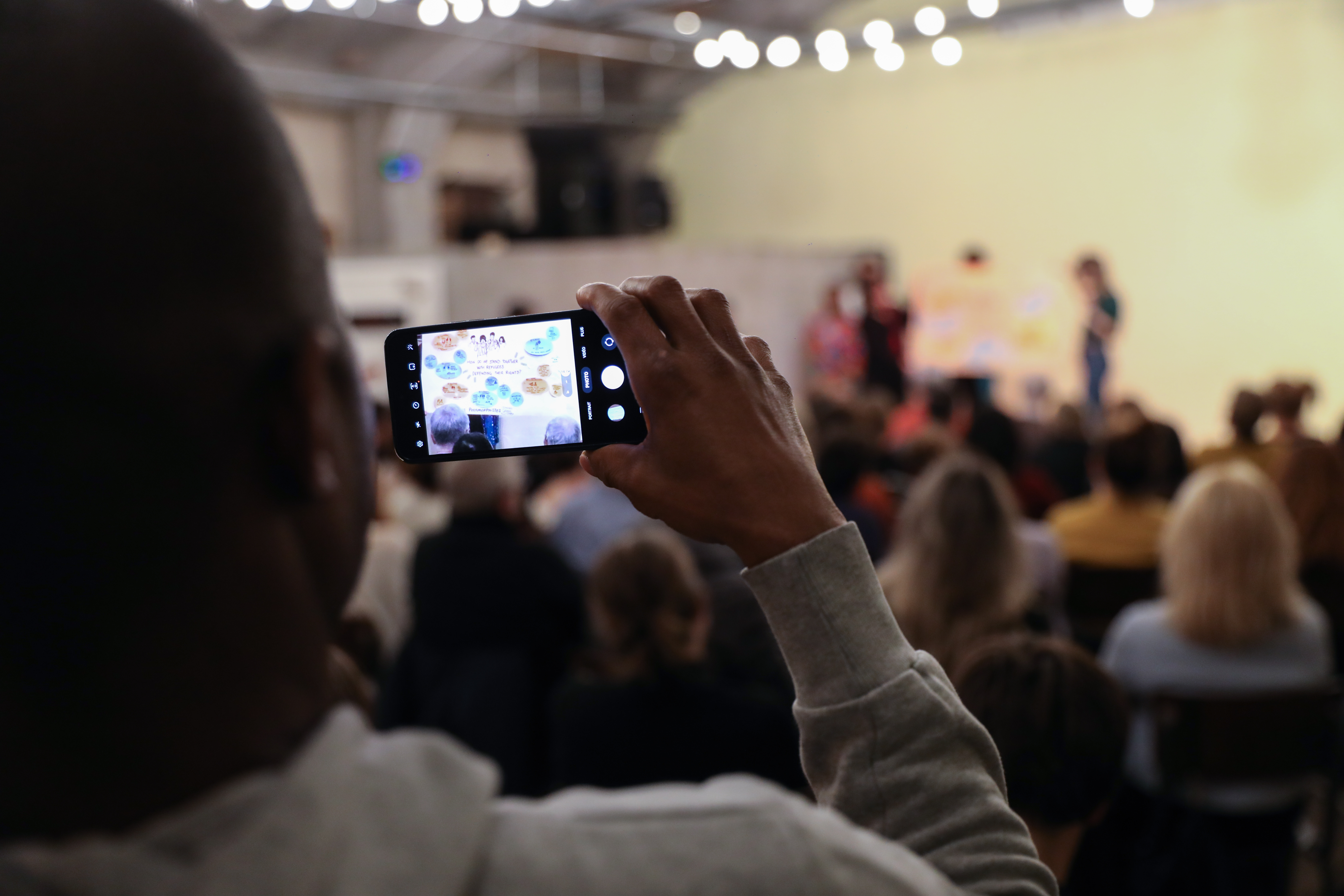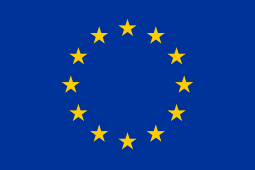The MILE project is slowly but surely nearing the end of its two-year journey, after having brought together individuals and organisations from across Europe, including Belgium, Spain, Greece, Latvia, the UK and the Netherlands. Newcomers, Brussels locals, municipalities, organisations led by or working with migrant and refugees, civil society organisations, and research teams exchanged local experiences of migration and inclusion and explored ways for cities to become more inclusive towards their migrant and newcomer population while promoting the participation of all.
Find out more about MILE’s ideas and best practices here.
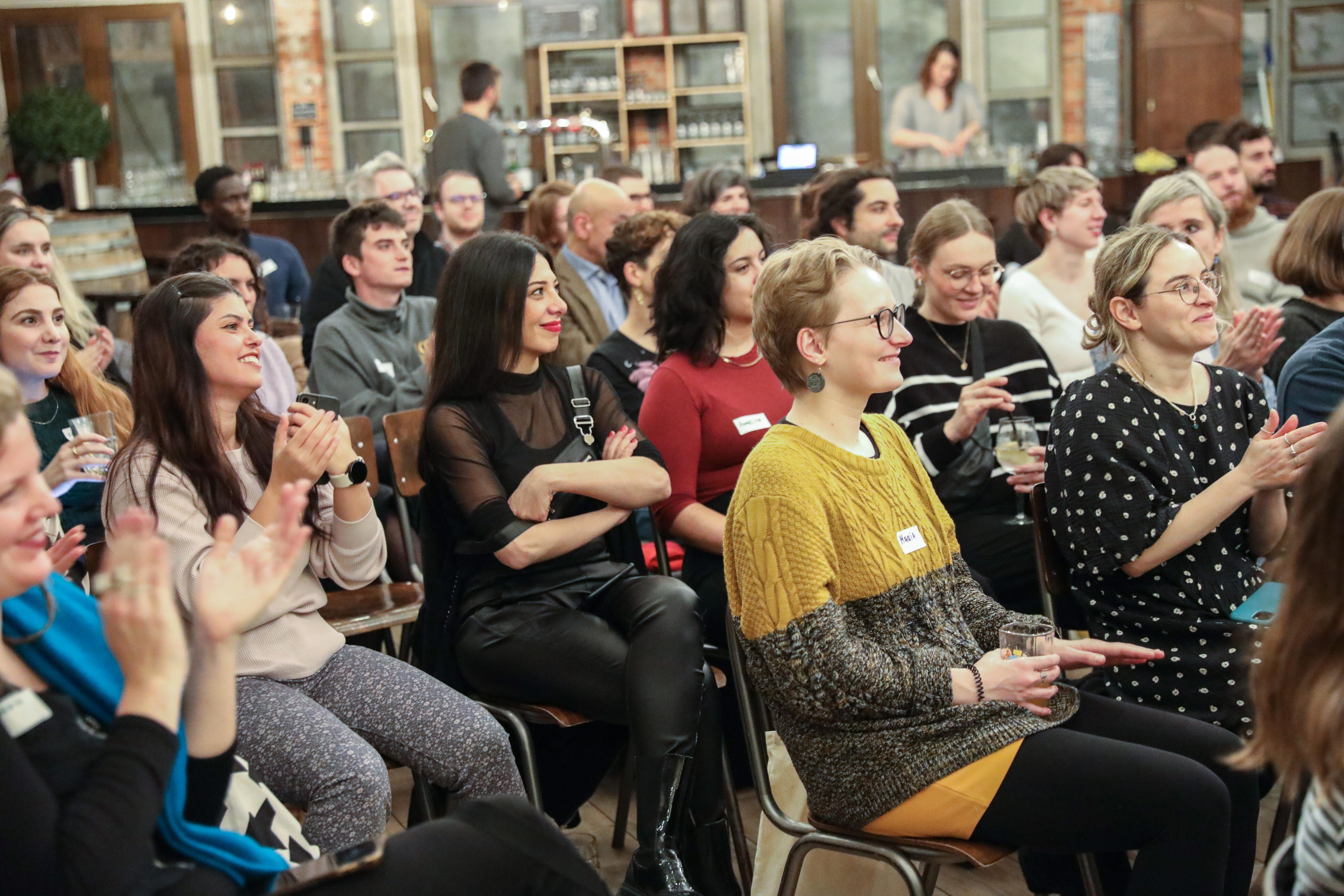
The final event in Brussels took place over two days, from 23-24 November. The first day brought together nearly 100 people including project partners, Brussels locals and newcomers, members of migrant communities, policymakers and researchers. They were joined by the theatre group Les Polymorphistes which, coordinated by Hakim Trabelsi, performed a participatory ‘forum theatre’ based on the concept of the Theatre of the Oppressed.
Participants witnessed scenes of oppression based on real-life and intersectional experiences of a woman from Venezuela living in Belgium on a refugee status who experiences racist and sexist structures at work and during her citizenship application. Spectators became “spect-actors”, and could empathise with the story of a stranger and imagine themselves in her shoes. As masters of time, words and actions, with the help of improvisation techniques, participants changed and reenacted scenes to tackle the oppression.
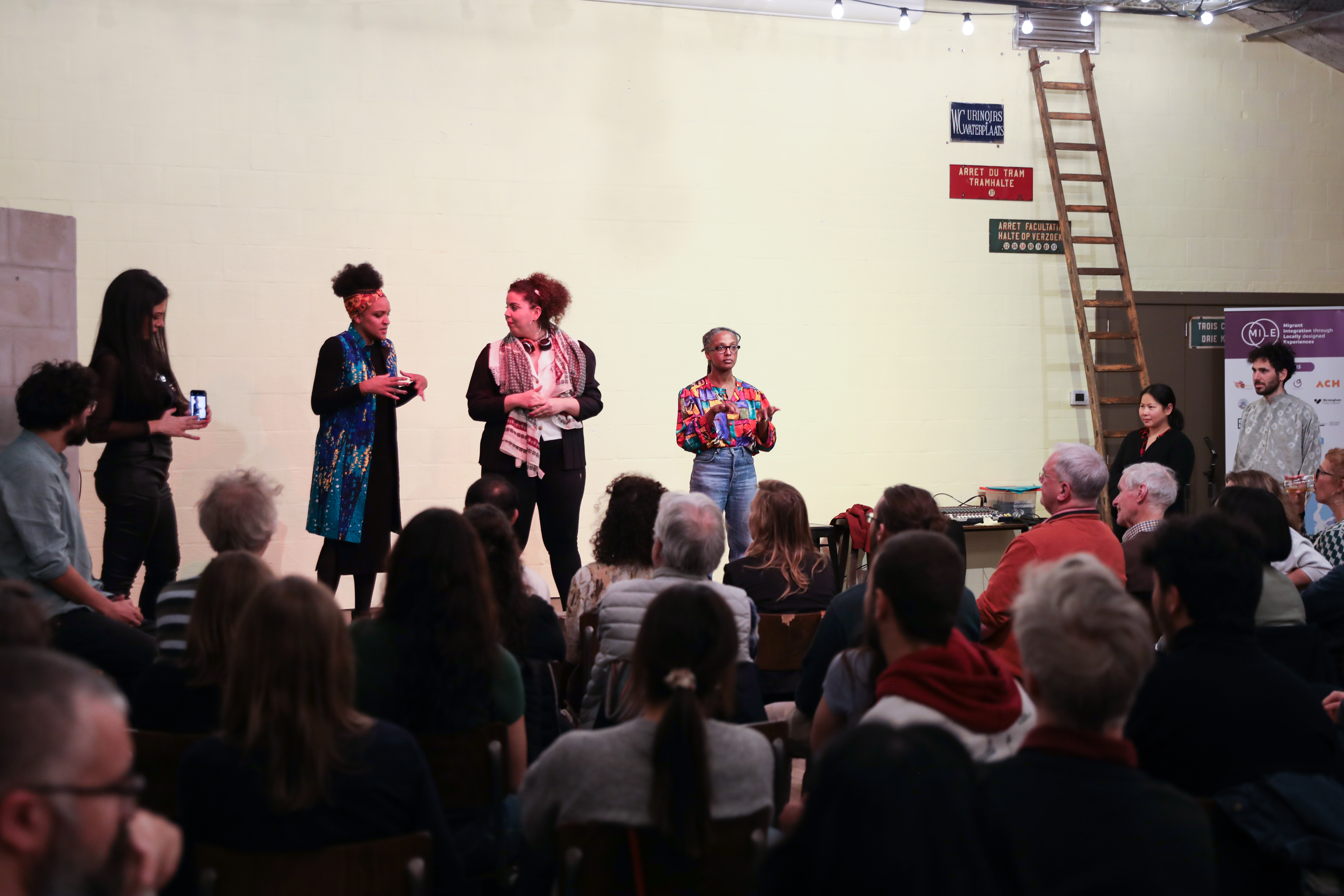
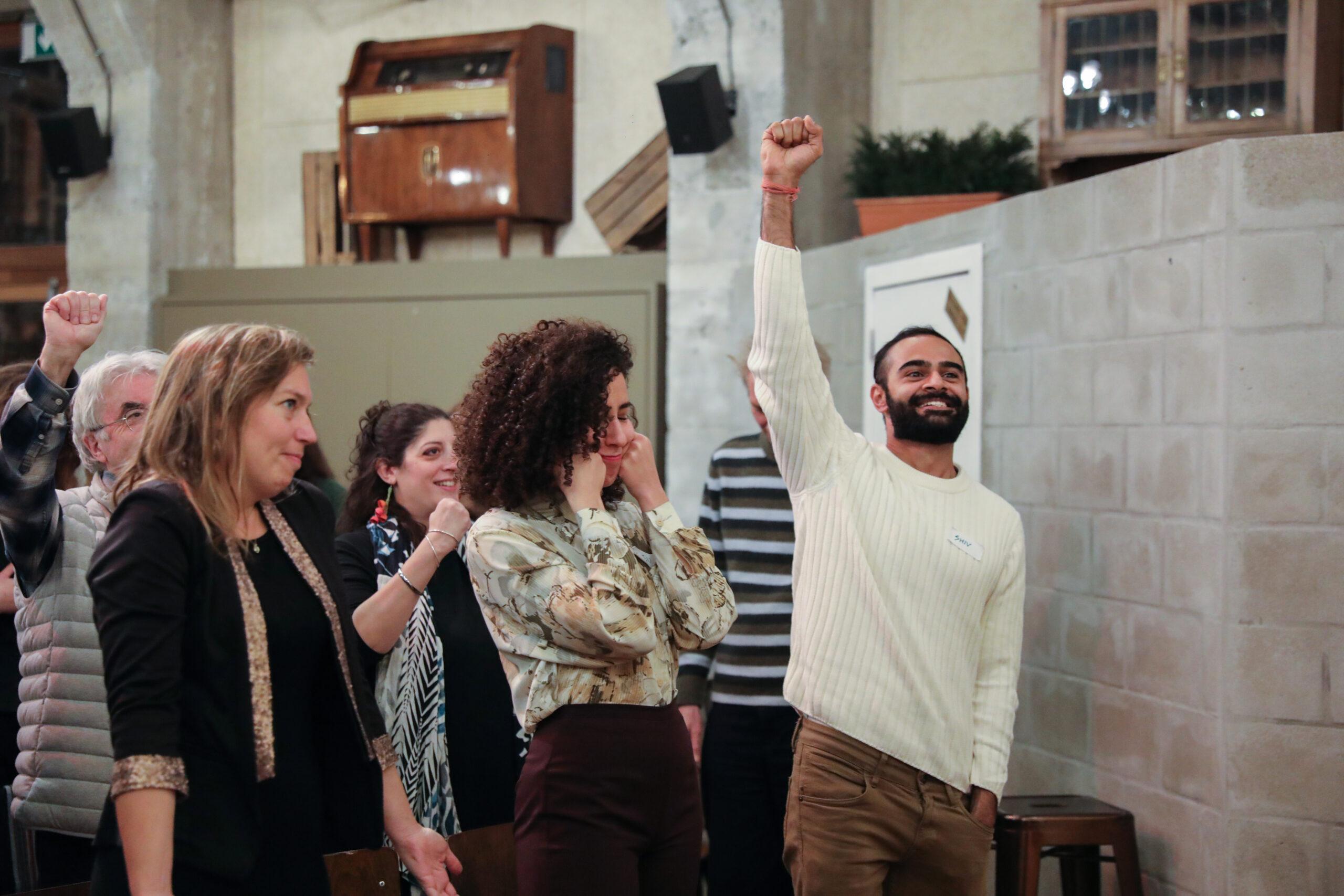
Like in real life, the oppressor or oppressing system could not be replaced or abolished. Using realistic solutions that participants could take home and apply in their own lives, the performance showed how small, yet meaningful actions carried out by a community, powered through empathy and imagination, can produce real change and lead to more social justice. Some of the ideas that were co-created during the performance can be found in this graphic recording provided by Les Polymorphistes.
The event was rounded off by a chance to network as well as a performance of the Makam Duo, with Mevlüt Akgüngör on the ney (reed flute), Robert Micin on the oud, and Hilde De Clercq, the Ghent-based percussionist, singer and movement artist. They performed pieces from the vast repertoire of Ottoman music and the mystical Sufi music, highlighting the diverse cultural influences of Ottoman music.
Catering was provided by We Exist, an organisation created by Syrian people who lived through the war in their home country and, after arriving in Brussels, saw an opportunity to share the flavours of their childhood, and promote inclusion and diversity while creating job opportunities for other newcomers.
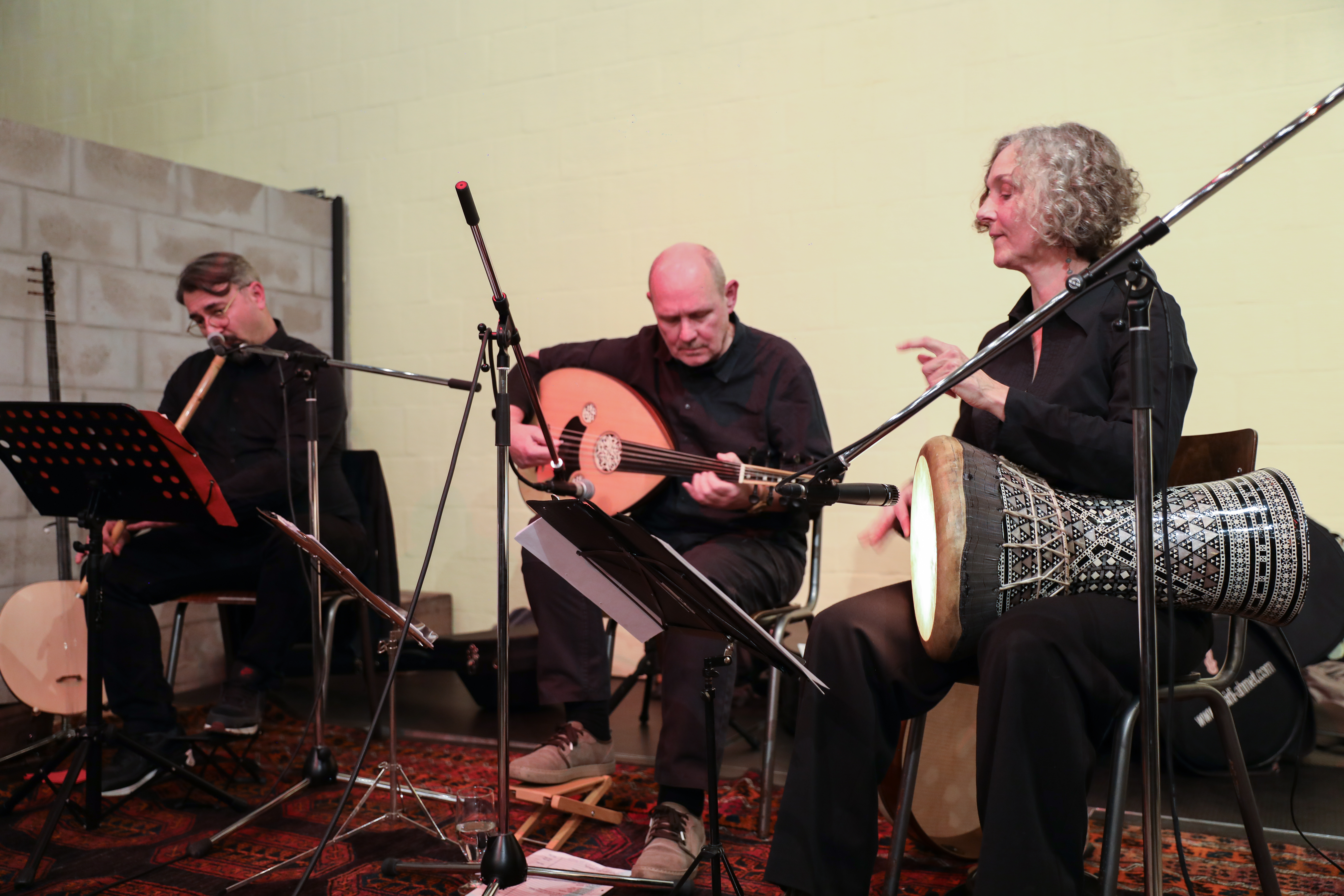
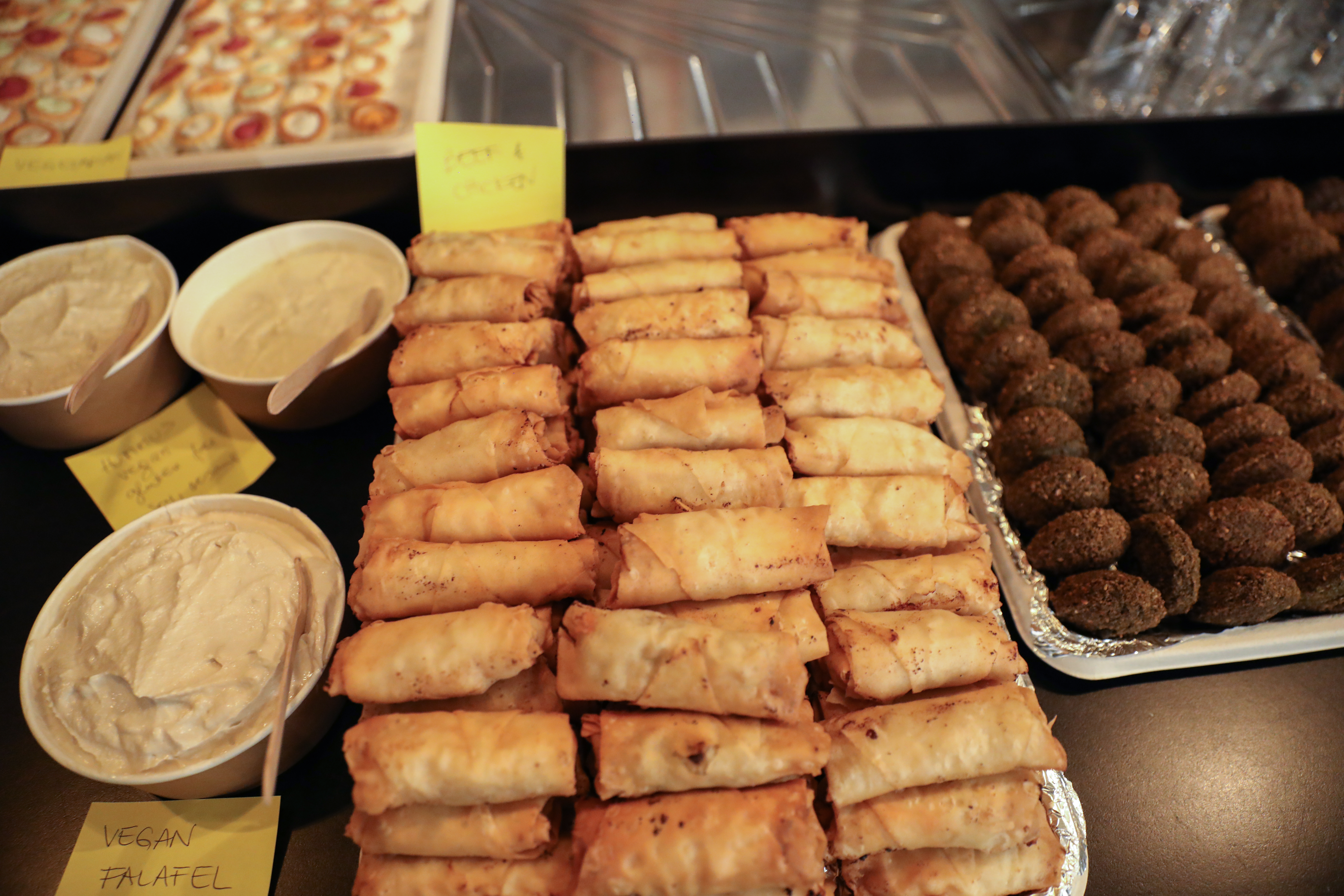
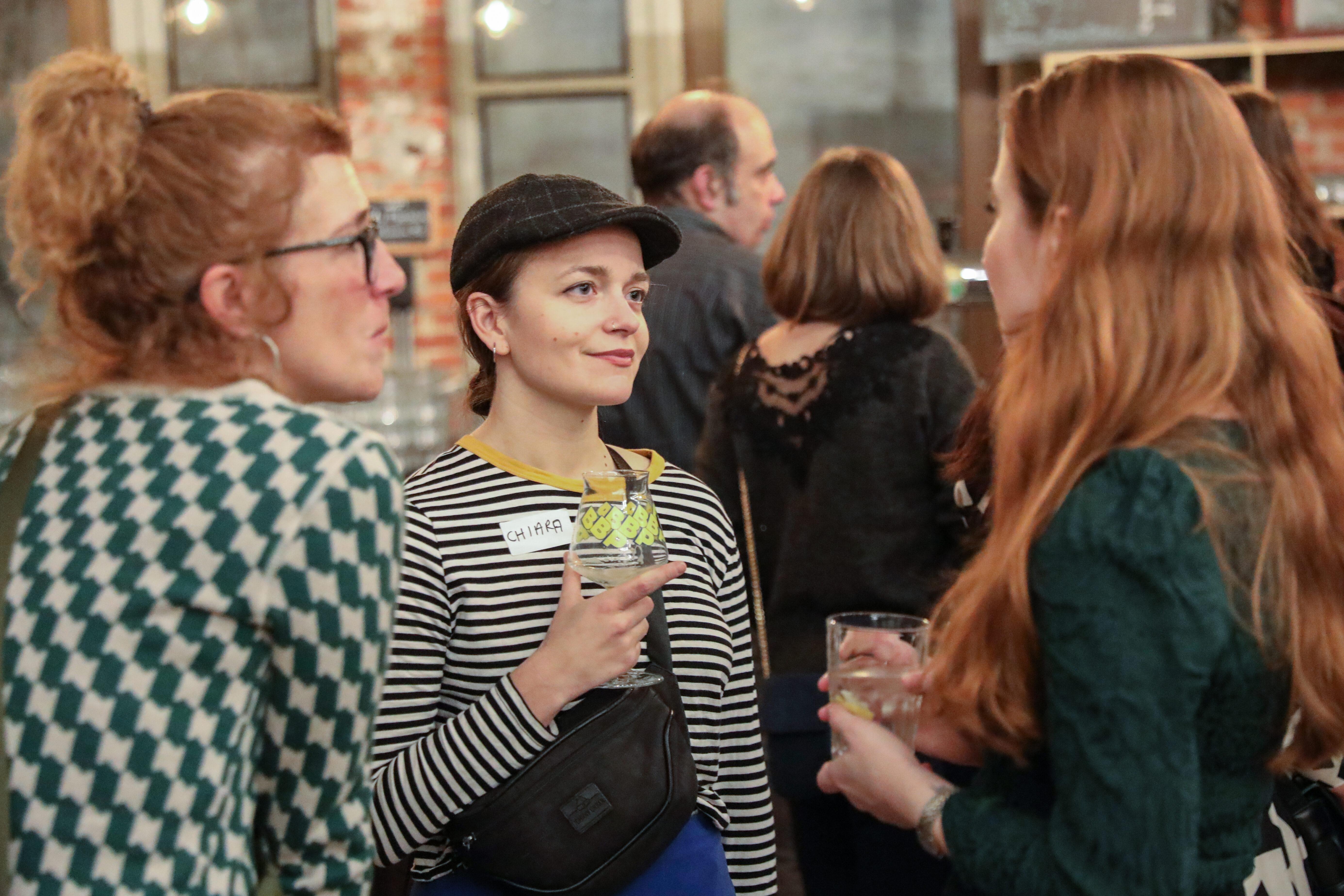
You can find more photos from the evening here.
On the second day of the event, around 60 participants came together at the offices of the Spanish National Research Council (CSIC) for a morning of discussions and debates. Participants and speakers shared different approaches to promoting migrant inclusion and participation in cities, through policymaking, city collaboration, research, cultural initiatives and co-creation.
Welcome remarks were offered by Adem Kumcu, UNITEE President, and André Sobczak, Secretary General of Eurocities, the largest network of European cities and supporting partner of the MILE project. Both highlighted the importance of promoting migrant inclusion and participation at the local level, as a way to counter anti-immigrant sentiment and to pave the way for more innovative and diverse societies.
The introductory remarks were followed by an interactive session led by Seyran Khalili, Project Lead at New Women Connectors, on ‘Migrant participation in practice: Sharing first-hand experiences from the local level’. In discussion groups, members of migrant communities, municipalities and research teams discussed key barriers to participation, as well as solutions and innovations for local offers and services, communication, sustainability, building trust and engagement and EU collaboration. Ideas were brought together and visualised in this knowledge tree.
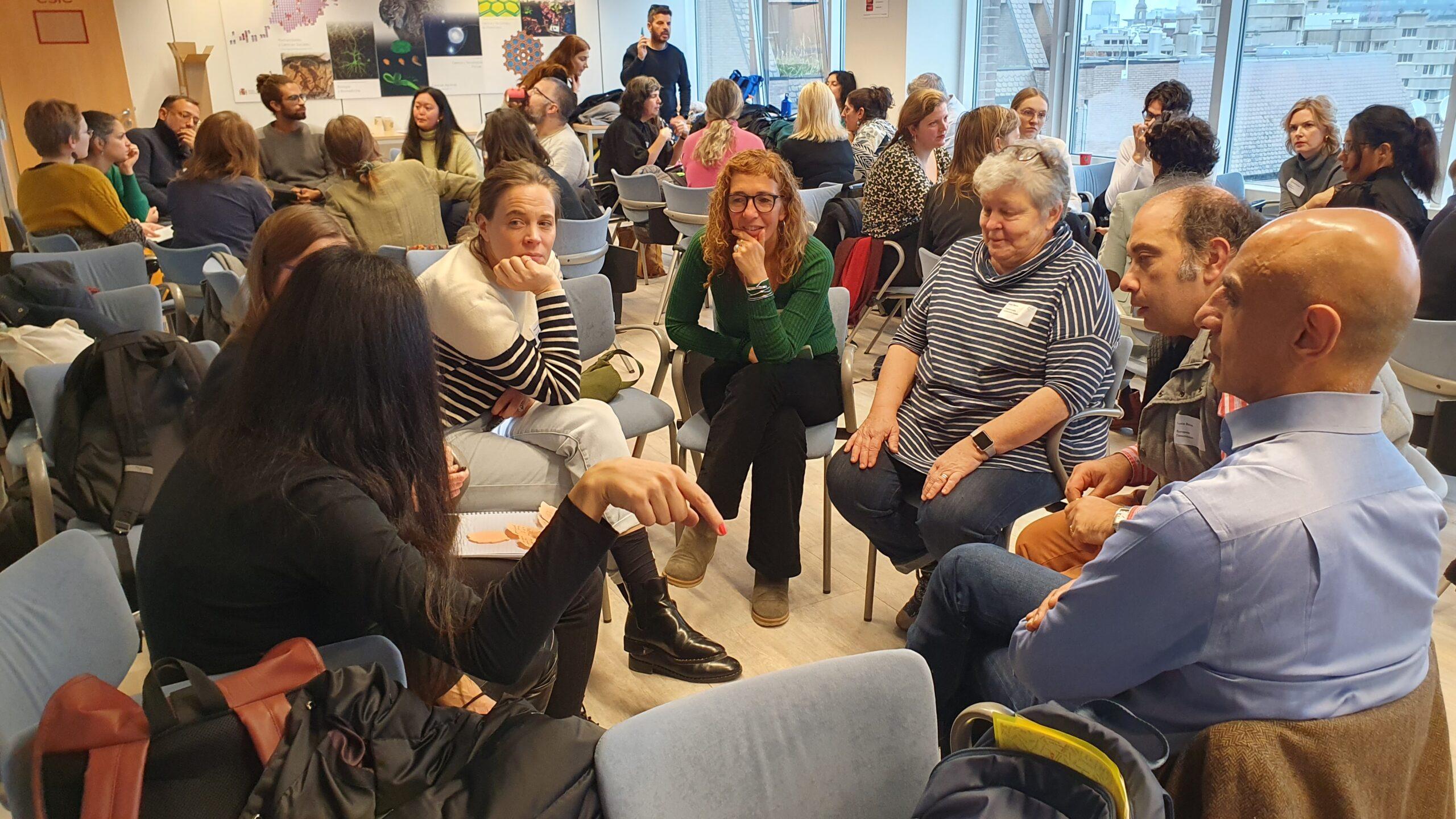
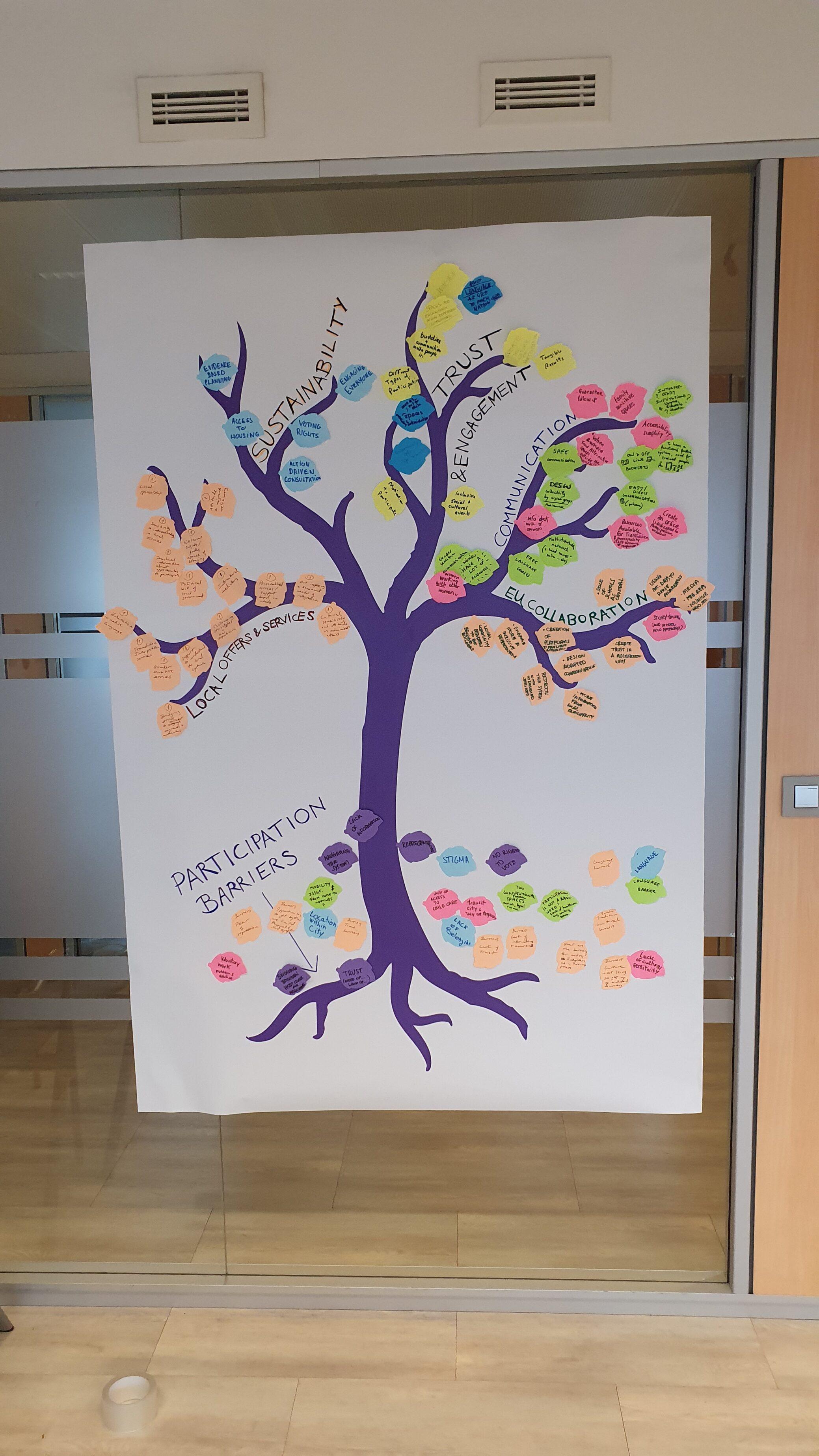
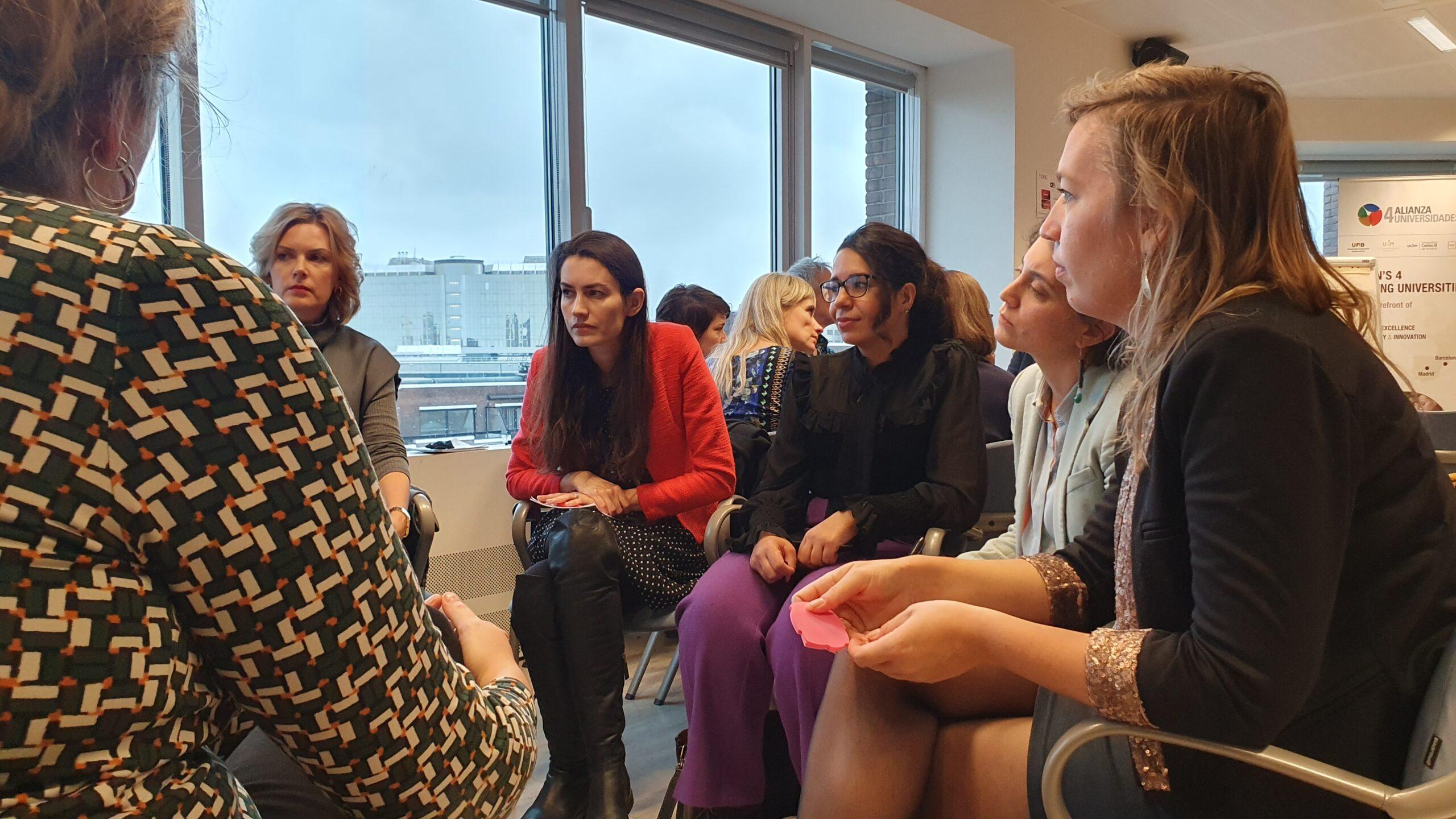
All rights reserved: MILE project
The last session of the day featured a panel debate moderated by Monder Ram, director of the Centre for Research in Ethnic Minority Entrepreneurship (CREME) with contributions from Astrid Begenyeza, socio-cultural project officer at Brussels2030, a non-profit organisation preparing Brussels’ candidacy for European Capital of Culture in 2030; Safaa Charafi, an architect, urbanist and founder of Urban Inclusion, a consulting firm on gender, diversity, and urban development; Tamara Stojanovic, Project Manager at the Municipality of Mechelen working on the projects MUST-a-Lab and EMBRACE; and Bryn Watkins, communications and project manager at commissioner.brussels, a non-profit mandated by the Brussels-Capital Region to build bridges with the city’s European and international organisations.
Responding to the questions and input from the moderator and those in the room, the speakers elaborated on some of the challenges faced by marginalised or underrepresented communities they could perceive in terms of their local, political and cultural participation. Speakers also addressed the role of inclusive urban planning from the perspective of marginalised groups, the importance of accessible and inclusive language and culture in cities, approaches that can give youth an active role and voice in shaping a city and to influence policy, and ways for participatory and multi-stakeholder projects and initiatives to ensure the true representation and participation of migrants, learn from mistakes and become sustainable.
You can find a full summary of this panel debate here (WILL ADD LINK TO REPORT).
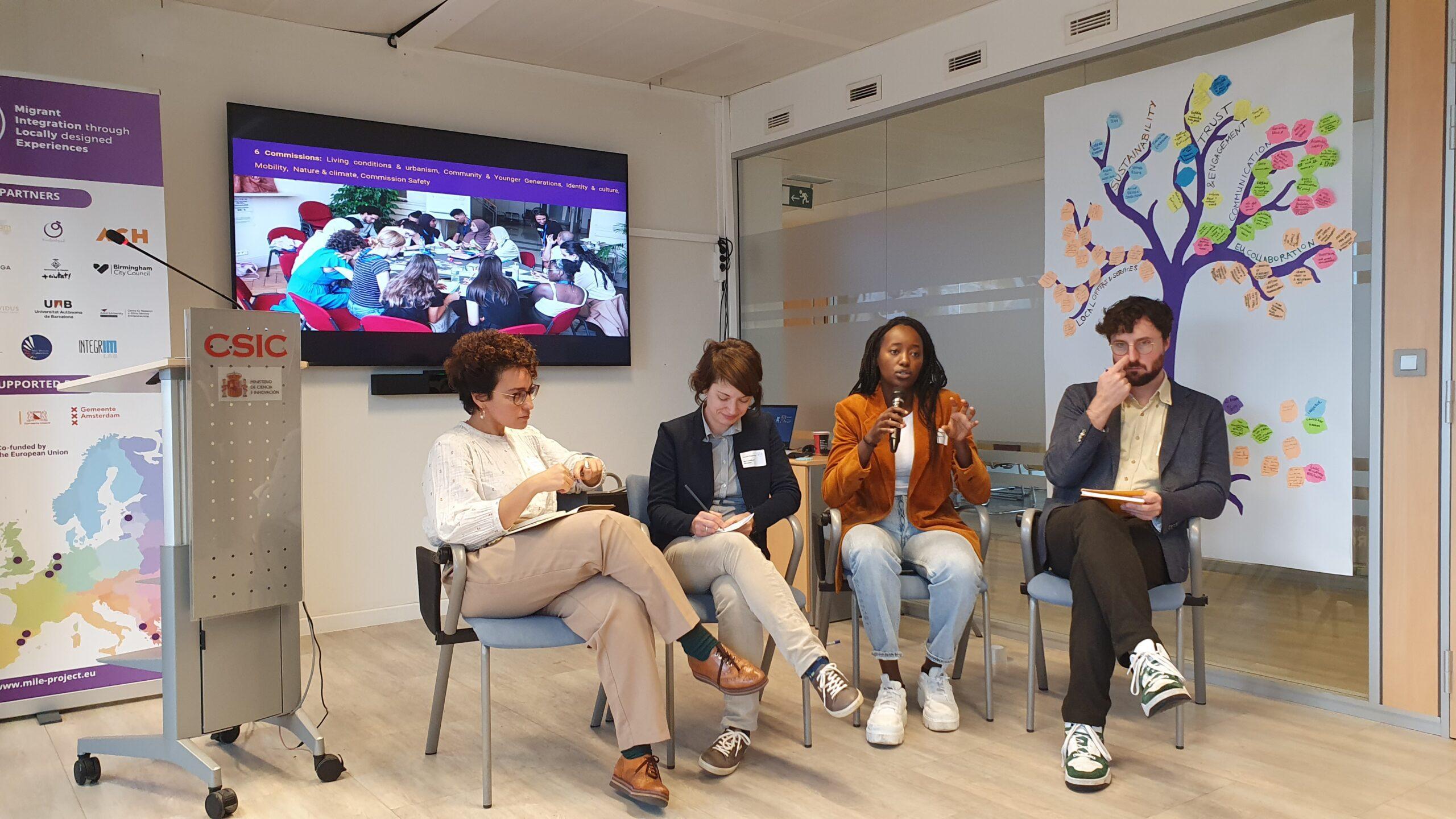
All rights reserved: MILE project

